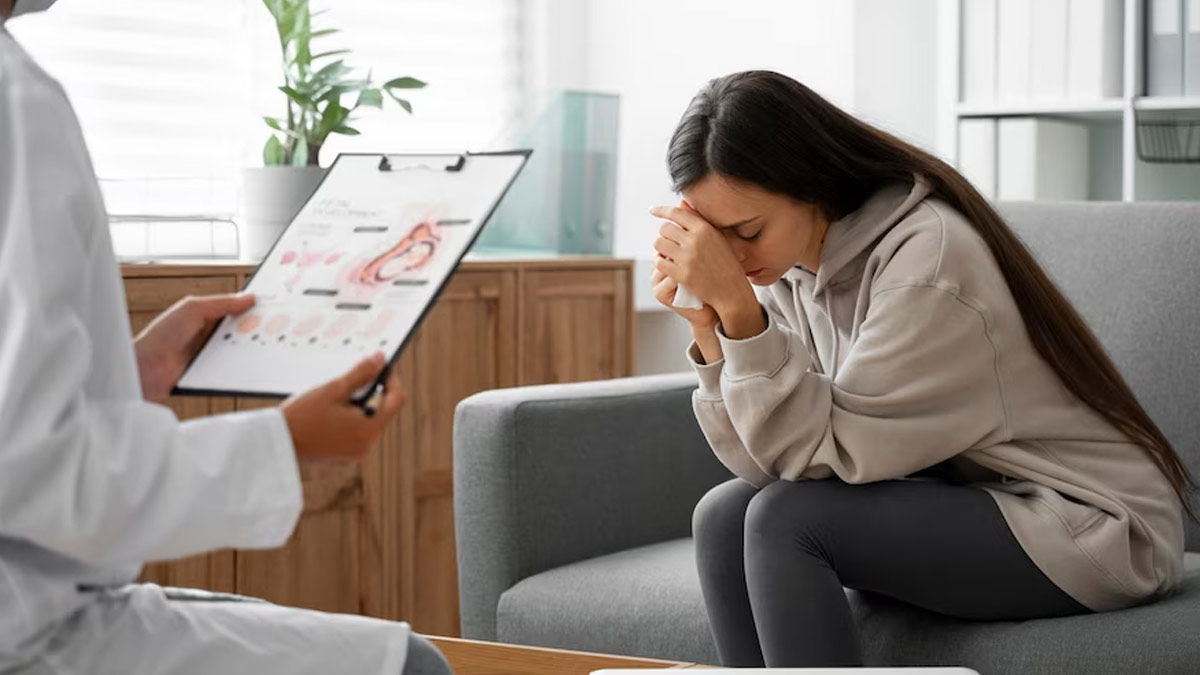
In the intricate tapestry of women’s reproductive health, an interesting and often overlooked connection emerges between the emotional hormonal changes and polycystic ovary syndrome, commonly known as PCOS. In conversation with Dr Advait, Chief Medical Officer, Truworth Wellness, he shared that PCOS is a complex hormonal condition that affects millions of women worldwide, and is characterised by several symptoms, including irregular periods, excessive hair growth and weight gain.
Table of Content:-
According to the World Health Organisation, 8-13% of the females in the reproductive age are suffering from PCOS and, out of them, 70% of the cases remain undiagnosed.
In recent years, this complex hormone disease has gained a lot of attention from the healthcare professionals, but what often remains in the shadows are the emotional and mental health impacts of this condition. The chronic nature of the condition and the link between PCOS and emotional well-being is often underestimated. PCOS disrupts the balance between hormones, causing irregularities in insulin, androgens, and estrogen levels, which, in turn, leads to hormonal and emotional fluctuations.
Hormonal Fluctuations in PCOS

Women diagnosed with PCOS might experience erratic hormonal fluctuations that can have a significant impact on their reproductive and overall health, shares Dr Advait. These hormonal imbalances might lead to a range of uncomfortable symptoms like mood swings and emotional instability, and long-term health complications including type 2 diabetes, hypertension, cardiovascular diseases, and endometrial cancer.
Also Read: Early Stages Of PCOS And How To Manage Them
For instance, sometimes an individual’s body suffering from PCOS might not respond effectively to insulin due to metabolic challenges associated with PCOS. This results in increased insulin production, which can trigger high levels of insulin in the bloodstream and disrupt hormone balance, and further impact physical and mental wellbeing.
Additionally, some women might also suffer from androgen dominance, an overproduction of male hormones, leading to excessive hair growth, acne and male-pattern baldness and irregular menstrual cycle. These signs and symptoms of PCOS not only impact physical wellbeing but can also lead to emotional and psychological effects, including mood swings, anxiety, and depression.
Mental Health Impacts of PCOS

According to Dr Advait, the mental health impacts of PCOS are profound, with hormonal fluctuations, including insulin resistance and androgen dominance, playing a crucial role in disrupting neurotransmitter function and affecting mood regulation. According to the National Library of Medicine, women with PCOS have 8 times higher risk of experiencing depression and anxiety, than individuals without the condition. Moreover, the physical symptoms of PCOS, including weight gain and excess hair growth can take a toll on a woman's self-esteem and body image, which can lead to negative self-perceptions and body image, further exacerbating mood disturbances and stress.
Also Read: PCOS Diet: Foods To Eat And Avoid To Relieve Symptoms
Dietary patterns also play a vital role in influencing hormonal fluctuations, leading to mood disorders. To address this, individuals can include low-GI whole-grain, cereals, fruits, flaxseeds, soy and healthy oils in their diet and avoid cheese, processed foods and alcohol consumption. Furthermore, it's advisable for women to integrate physical activities like walking, jogging, or cycling into their daily routines to keep themselves both physically and mentally healthy.
Watch this video to know the right diet for PCOS
Way Forward
Dr Advait concludes by saying, PCOS management is not about physical symptoms, but it encompasses a complex interplay of emotional and mental health. The complicated relationship between emotional hormonal changes and PCOS in reproductive women unveils a captivating intersection of mind and body. By recognizing the connection, the healthcare professionals can adopt a comprehensive approach, which will not only address the medical requirements but also provide psychological support and counselling to contribute towards both emotional and physical well being of the women and enhance their overall quality of life.
Also watch this video
How we keep this article up to date:
We work with experts and keep a close eye on the latest in health and wellness. Whenever there is a new research or helpful information, we update our articles with accurate and useful advice.
Current Version
